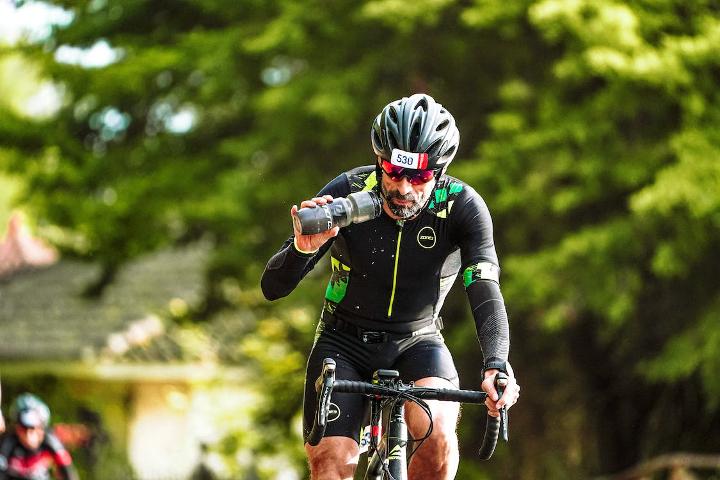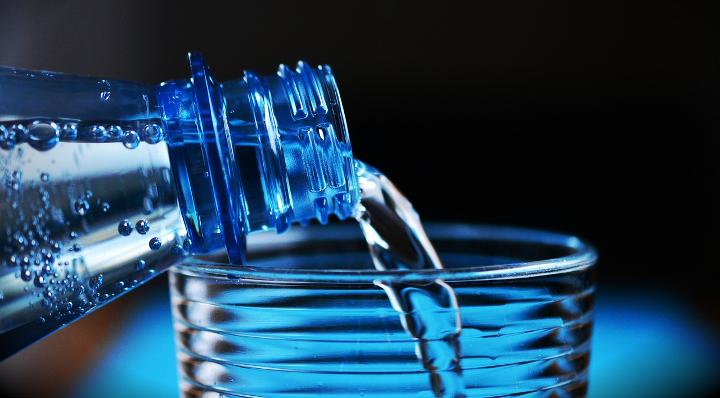What are the hydration needs of cyclists?

As a cyclist, I understand the importance of proper hydration for optimizing performance and maintaining overall well-being. Hydration is not just about quenching your thirst; it directly impacts your training, recovery, and ability to push yourself to new limits.
Cyclists have specific hydration requirements due to the physical demands of their sport. Even a slight decrease in body weight due to sweating can impair performance and decrease muscular work. That's why it's crucial to prioritize hydration and ensure that your body has the fluid it needs to perform at its best.
Monitoring your hydration levels is key. I recommend weighing yourself daily and paying attention to the color of your urine. These simple indicators can give you valuable insights into your hydration status.
So, how much fluid should cyclists aim to consume daily? It's generally recommended to drink 2-3 liters of fluids, including fruit and vegetable juices, sports drinks, water, and even tea or coffee. The key is to maintain a balance of fluids throughout the day.
When it comes to pre-ride hydration, electrolyte drinks should be your focus. They provide essential minerals to help your body function optimally during exercise. During your ride, it's important to start drinking from the beginning and not wait until you feel thirsty. Depending on your individual sweat rates, you may need to adjust the amount of fluid you consume during longer rides.
It's worth noting that hydration isn't just about water. Electrolytes, such as sodium and potassium, play a crucial role in maintaining the body's fluid balance. Sports drinks with electrolytes are recommended for longer rides, as they help replenish these essential minerals and provide carbohydrates for sustained energy.
While hydration is vital, it's important to find the right balance. Drinking too much water without replacing electrolytes can lead to imbalances in the body's fluids. So, be mindful of your hydration strategy and prioritize replenishing both fluids and electrolytes.
Remember, hydration alone may not always solve issues like cramping during cycling. Gradually increasing exercise intensity, stretching, pacing yourself, and taking electrolytes can also help alleviate cramps and optimize your performance.
Key Takeaways:
Cyclists need to prioritize hydration to maintain optimal performance and prevent negative effects on their training and recovery.
Weigh yourself daily and pay attention to urine color for indicators of hydration status.
Drink 2-3 liters of fluids daily, including electrolyte drinks for pre-ride hydration.
Start drinking from the beginning of your ride and adjust fluid intake based on individual sweat rates.
Sports drinks with electrolytes are recommended for longer rides to replace essential minerals and provide carbohydrates.
The Impact of Hydration on Cycling Performance
Proper hydration plays a crucial role in improving cycling performance. As a cyclist, staying hydrated is essential to maintain optimal performance and prevent negative effects on your training and recovery. Dehydration can lead to reduced performance, impaired cognitive function, mood changes, headaches, and compromised muscle strength. To ensure you stay hydrated during your bike rides, here are some useful tips:
Drink small amounts of water or electrolyte drinks every 10-15 minutes during a ride to replenish fluids lost through sweat and stay focused.
The length of your ride determines the emphasis on replenishing liquids or focusing on carbohydrate intake. For shorter rides, water is usually sufficient. However, for longer rides or in hot conditions, electrolyte-rich drinks are recommended to replenish essential minerals.
By following these hydration tips, you can optimize your cycling performance and enjoy your rides to the fullest.
Hydration Tips for Cyclists
“Drinking water is essential during cycling to replenish fluids lost through sweat and to stay focused on the ride.”
Another important aspect of staying hydrated while cycling is to replace lost nutrients and electrolytes after a ride. This aids in recovery and helps with muscle repair and carbohydrate level restoration. Proper nutrition and hydration are key to maximizing your cycling performance.
In conclusion, staying hydrated is vital for cyclists. It not only improves endurance, stamina, and focus but also prevents the negative effects of dehydration on performance. Remember to drink small amounts of fluids regularly during your rides, and replenish lost fluids and nutrients afterward. By following these hydration practices, you can enhance your performance and make the most of your cycling experience.
How Much Water Should Cyclists Drink Daily?

When it comes to staying hydrated as a cyclist, knowing how much water to drink is crucial. Hydration requirements can vary depending on factors such as age, gender assigned at birth, weight, activity level, and the environment you're cycling in.
The general recommendation is to drink at least 64 ounces (8 cups) of plain water daily. However, the dietary reference intake suggests that men should aim for 3.7 liters per day, while women should aim for 2.7 liters per day. This includes fluids from both food and drinks.
During your workouts or rides, it's important to stay hydrated. Before your ride, aim to drink 16-24 ounces of water. During the ride, consume 4 ounces of water or an electrolyte-rich drink every 15 minutes. After the ride, replenish with 16 ounces of fluid for every pound lost during exercise.
To ensure you're meeting your hydration needs, monitor your hydration status by checking for changes in body weight and urine color. These indicators can help you gauge whether you need to increase or decrease your fluid intake.
Activity | Recommended Fluid Intake |
Before the ride | 16-24 ounces of water or electrolyte-rich drink |
During the ride | 4 ounces of water or electrolyte-rich drink every 15 minutes |
After the ride | 16 ounces of fluid for every pound lost during exercise |
Remember, these recommendations are a starting point, and individual hydration needs may vary. It's important to listen to your body, adjust your fluid intake accordingly, and consult with a healthcare professional or sports nutritionist for personalized guidance.
Conclusion
As a cyclist, staying hydrated is crucial for maintaining optimal performance and maximizing your enjoyment of bike rides. By following the best hydration practices, you can improve your endurance, stamina, and focus.
One of the key aspects of hydrating during bike rides is to prioritize pre-ride hydration. Before hitting the road, make sure to consume electrolyte drinks to replenish your body's electrolyte levels. During the ride, it is essential to drink small amounts of water or electrolyte drinks every 10-15 minutes to replenish fluids lost through sweat and stay hydrated. Remember, don't wait until you feel thirsty to start drinking, as this can already indicate dehydration.
After completing your ride, it's important to replenish the fluids and nutrients your body needs for recovery. Make sure to drink enough water and consume electrolyte-rich drinks to replace lost nutrients and aid in muscle repair. Additionally, focus on restoring carbohydrate levels by incorporating protein into your post-ride nutrition.
Remember, everyone's hydration needs may vary, so it's crucial to listen to your body and adjust your fluid intake accordingly. Monitor your hydration status by checking your body weight changes and urine color regularly. By prioritizing hydration and following these best practices, you can ensure that you stay properly hydrated as a cyclist and optimize your performance on every ride.
FAQ
What are the hydration needs of cyclists?
Cyclists should aim to drink 2-3 liters of fluids daily, including fruit and vegetable juices, sports drinks, water, and tea or coffee.
What is the impact of hydration on cycling performance?
Proper hydration plays a crucial role in improving cycling performance. Dehydration can lead to reduced performance, impaired cognitive function, mood changes, headaches, and compromised muscle strength.
How much water should cyclists drink daily?
The general recommendation is to drink at least 64 ounces (8 cups) of plain water daily. However, the dietary reference intake suggests 3.7 liters per day for men and 2.7 liters per day for women, including fluids from food and drinks.
What are some hydration tips for cyclists?
Cyclists should drink small amounts of water or electrolyte drinks every 10-15 minutes during a ride to replenish fluids lost through sweat and stay focused. For longer rides or in hot conditions, electrolyte-rich drinks are recommended.
